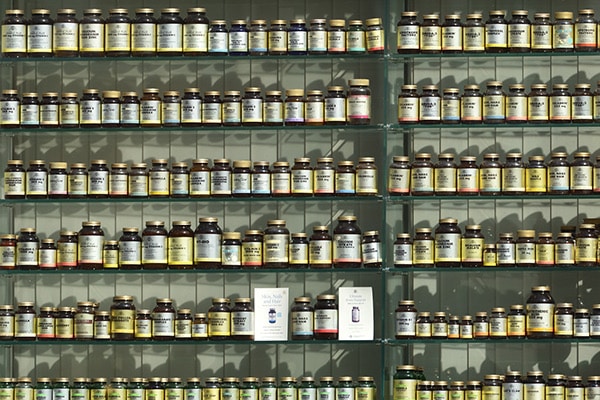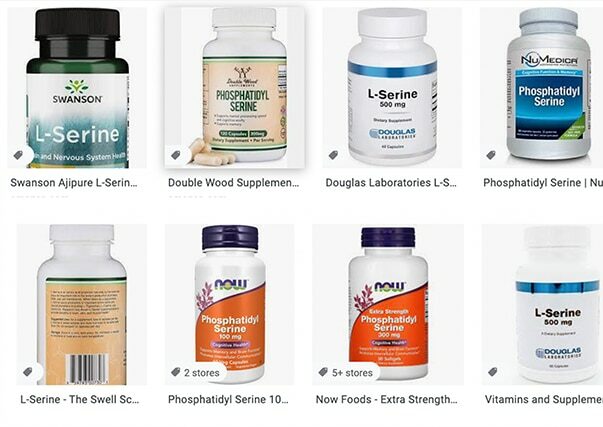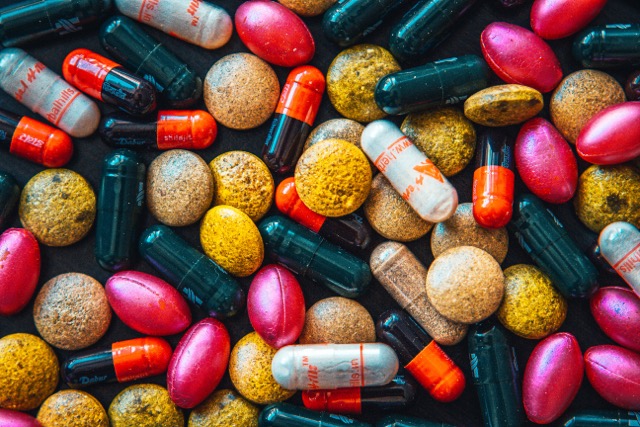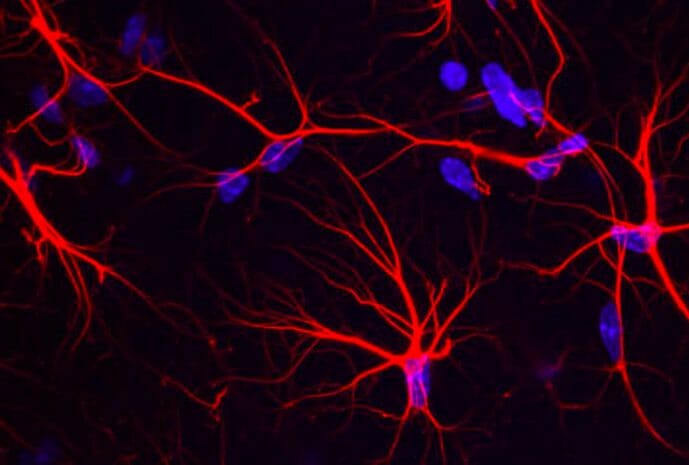NAD supplements are said to have the power to reverse DNA damage, increase healthy lifespan, even fend off the effects of aging in the brain. Here's what the science says.
Inside every cell in the body, smaller structures called mitochondria turn sugary fuel into energy. Nicotinamide adenine dinucleotide (NAD) is the universal energy currency that allows cells to defend themselves, send signals to each other, and power many other vital processes. Supplement makers have seized on this essential coenzyme and its handsome acronym, packaged it into infusions and pills, and put it on the market. The result: Next time you’re shopping up vitamins at your local health food store or pharmacy, you might come across NAD supplements (or variations, like NAD+ or NADH).
NAD supplements are said to have the power to do all manner of things, from nurturing healthy cells to reversing DNA damage; from supporting cognitive health to fending off the effects of aging in the brain. Some NAD product makers say their pills can increase a person’s healthy lifespan, along with other longevity and anti-aging miracles. To back up these claims, NAD supplement makers cite studies that suggest nicotinamide adenine dinucleotide plays a role in the aging of cells — and that supplementation will have some therapeutic benefit accordingly.
Is this all hype? Or does it stand up to gold-standard studies?
The brain is an energy-intensive organ — using up roughly 20 percent of all the body’s energy. Intuitively, it makes sense that adding more fuel could keep the brain running optimally for longer. Some research even suggests that Alzheimer’s disease might be linked to an energy imbalance in the brain that causes the regions important for memory and learning to starve and die.
So far, there are promising study results into NAD’s effects on simple organisms like yeast and flatworms, where NAD has been shown to prolong lifespan.
The problem, experts say, is that the human body and brain are a long, long way from flatworms.
“I think there is so much interest because boosting NAD is likely to be safe and quickly applicable relative to other ideas about what might improve the aging process,” University of Pennsylvania physiologist Joseph Baur told Being Patient.
But as of now, scientists are just only starting to test whether NAD supplements could have similar positive benefits in humans.
A few studies have looked into NAD, NAD+, and NAD’s precursors NR and NMN, and their effects on things like memory, cognitive function and treating dementia, but so far, that research is very, very early-stage, Baur said. “With respect to brain health, the issue is that not enough studies on NAD supplements have been completed,” he noted.
Still curious about NAD? Here’s a look at what we know.
What are the different types of NAD supplements?
Different supplements can increase NAD levels in the body and the brain. Nicotinamide riboside (NR) and nicotinamide mononucleotide (NMN) are supplements that come in capsule form. Once ingested, the cells can turn these ingredients into NAD.
NR – nicotinamide riboside (a NAD precursor)
Discovered in 2004, NR is a form of vitamin B3, and an important building block of NAD. Once an NR capsule is ingested, the NR is absorbed into the bloodstream and can travel to the brain.
Does NR improve brain health?
Since scientists only recently discovered NR, there haven’t been a lot of studies looking at how it affects the brain. One study of 22 healthy older adults found that 500 milligrams of NR taken twice daily altered biomarkers of neurodegenerative disease in the blood.
It isn’t clear at this point if it affects brain function, or could provide some sort of benefit to people living with dementia — but, scientists are probing the question. A Phase 1 trial involving 30 patients with Parkinson’s disease found that 1000 milligrams of NR affected the brain’s metabolism and reduced biomarkers of inflammation in the cerebrospinal fluid.

A Phase 2 trial was conducted in 60 people with mild-to-moderate Alzheimer’s to see whether a multi-component supplement that contained 1000 milligrams of NR (as well as many other ingredients) could provide the brain with a cognitive boost. After taking the supplement daily for 84 days, the participants performed slightly better on psychological tests than the placebo group.
These findings are far from conclusive. More research is needed to understand whether NR has benefits and how the body night absorb it.
Is NR safe?
According to studies published so far, taking 1,000 milligrams of NR daily is considered safe.
NMN – nicotinamide mononucleotide (a NAD precursor)
Like NR, NMN isn’t well-studied in humans. However, there is evidence that NMN can reach the brain once ingested. One study involving 108 healthy adult participants aged 65 and older found that taking 250 milligrams of NMN in the afternoon may reduce drowsiness. It is unclear if this is due to a direct effect on the brain.
When it comes to NMN in dementia, no research so far has been conducted on NMN as a supplement for treating any type or stage of dementia.
Is NMN safe?
Studies have found that taking up to 2,000 milligrams of NMN daily is safe for healthy adults.
NAD – nicotinamide adenine dinucleotide
Does NAD supplementation work?
In 2020, scientists published a review of existing research on NAD, NR and NMN supplementation, sometimes in combination with other things, like exercise. Of those 36 trials, 29 looked at whether these things could benefit human health. The majority — 17 studies — reported beneficial outcomes. The remaining 12 reported no benefits to patients. Ultimately, however, the scientists behind the review felt there was insufficient evidence to say definitively whether intravenous NAD supplementation improves brain health or cognition in healthy adults.
As for NAD’s benefits for people with dementia, there hasn’t been much research on this since one early study in the 1990s on intravenous infusions of NAD for people with Alzheimer’s or Parkinson’s. More research is needed here.
What about NAD infusions?
Unlike NR and NMN, NAD is often intravenously infused. While many alternative health clinics sell expensive intravenous infusions for addiction recovery and other chronic illnesses that might affect brain function, experts are unconvinced.
In an article for Science-based Medicine, pharmacist Scott Gavura wrote: “Not only do advocates claim vitamin injections offer medical benefits for an array of medical conditions (from cancer to macular degeneration to fibromyalgia and more), they are touted as helpful for preventing illness, too. Despite the continued hype, there is no evidence that vitamin infusions are necessary if you have a functioning gastrointestinal tract and are able to eat food.”
Is NAD safe?
While NAD supplements are available over the counter, as with any supplement, they aren’t subject to regulation, they’re not FDA approved, and they can carry risks.
“These supplements are similar to niacin and when used in pharmaceutical doses, niacin [a B vitamin and another NAD precursor] can cause serious muscle or liver problems in some people, so these supplements may not be benign,” Dr. Joshua Rabinowitz at Princeton University’s Lewis-Sigler Institute for Integrative Genomics told Shape. “I would recommend against taking them during pregnancy or breastfeeding.”
Where does the evidence stand on NAD’s health benefits when it comes to aging and brain health?
“There is no convincing evidence for or against a benefit at this point,” Baur said of NAD supplementation and brain health. Other scientists tend to agree with Baur: There’s just not enough research done yet to understand its benefits — or establish for sure that it even has any.
You might see otherwise on a supplement bottle’s label — but experts including Pieter Cohen, a physician and researcher at Cambridge Health Alliance, remind consumers that many of the health claims made by supplement manufacturers about brain health supplements (including NAD, NAD+, NR and NMN supplementation) aren’t supported by studies conducted in humans.
The bottom line: Even though NAD supplements might show promise in yeast and flatworms, there isn’t any evidence yet that these supplements help stave off brain aging or improve memory.
Does this mean NAD supplements definitely don’t have any health benefits for the brain? Not necessarily. There’s just no evidence that it does so far.




Is fish oil helpful for memory ????? How can I improve my memory???????? What can help me memorize paragraphs??????????????????